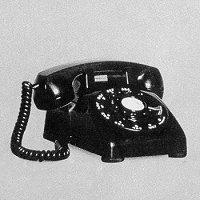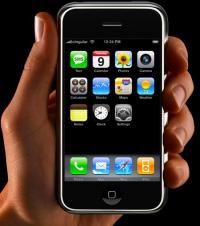[1] [2] [3]“One of these days, Alice… POW! Right in the kisser. Straight to the moon!”
Well, America’s favorite domestic abuser might have been a little more upbeat, were he alive to see these days. While he never succeeded in putting his his wife on the moon with a killer uppercut, it seems as though the government is finally going to help simplify the process of placing Americans on our closest celestial neighbor.
That’s right! The days of selective space travel are rapidly coming to an end. Forget about the prerequisites that have been the norm in the past, the age of space travel for the everyman is about to make a giant leap forward. No longer will it only be the super-genius scientists, who also moonlight as highly trained fighter pilots, that get a shot at landing on Luna, our turn is coming.
Let’s let El Presidente give us the low down: [4]
If U.S. astronauts land on the moon again before 2020, it won’t be aboard a NASA spacecraft.
The space agency’s 2011 budget, released today, reveals plans to scrap the Constellation program, including the rockets and spacecraft that NASA has been developing over the past four years to replace its aging space shuttle fleet.
Constellation’s demise would mean that NASA will have no plans for manned space flight beyond the final shuttle launch in fall 2010. Instead the U.S. will have to rely on other governments, such as existing Russian craft, to ferry people to the International Space Station.
…
U.S. President Barack Obama’s decision to scrap the program is based on Constellation being “over budget, behind schedule, and lacking in innovation due to a failure to invest in critical new technologies,” according to a statement posted on the White House Office of Management and Budget Web site.
This is absolutely awesome! I predict that we can’t even imagine what is just around the corner in terms of manned space flight now that the government is getting out of the way. The power of the individual seeking profit is about to be on full display.
Hmmm… Let me attempt to give you a hand at visualizing what this news means to space-faring.
For many, many, many years, the government endorsed a monopoly. The name of the organization which benefited was the Bell System, more commonly known as “Ma Bell”.
A quick wiki link for background: [5]
In 1934, the government set AT&T up as a regulated monopoly under the jurisdiction of the Federal Communications Commission, in the Communications Act of 1934.
As a result, by 1940 the Bell System effectively owned most telephone service in the United States, from local and long-distance service to the telephones themselves. This allowed Bell to prohibit their customers from connecting phones not made or sold by Bell to the system without paying fees. For example, if a customer desired a type of phone not leased by the local Bell monopoly, he or she had to purchase the phone at cost, give it to the phone company, then pay a ‘re-wiring’ charge and a monthly lease fee in order to use it. An oft-heard remark at the time was “Ma Bell has you by the calls”.
In 1949, the United States Department of Justice alleged in an antitrust lawsuit that AT&T and the Bell System operating companies were using their near-monopoly in telecommunications to attempt to establish unfair advantage in related technologies, especially the fledgling computer industry. The outcome was a 1956 consent decree limiting AT&T to 85% of the United States’ national telephone network and certain government contracts, and precluding the Bell System from extending its reach into the fledgling computer industry and from continuing to hold interests in Canada and the Caribbean.
The Bell System was finally put to rest in 1984.
Now, I’d like to examine the results of the government endorsed monopoly.
Beginning in 1927, customers of the Bell System were allowed to become the proud recipients of a black rotary phone. (source [6])
But boy, oh boy, the Bell System wasn’t done with phone technology after developing that little gem. A full ten years later, you could get the same phone, in a trendy square model!
Now, that was living, let me tell you… But, hey, don’t let the complete lack of innovation over a full decade make you think that the Bell System didn’t care about improving their product, or responding to customer needs/wants. They were hip. They were with it. And in 1963, when dial tones came into use, they showed the world that the Bell System still had it, why the Bell System was the undisputed leader in the telecommunications world (aside from the government gun, of course).
Snazzy, huh?
Essentially zero innovation, zero responsiveness to the customer, zero progress. For more than half a century.
But what happened after 1984? Didn’t the entire world just cease to communicate after the only organization who had ever supplied their phone needs suddenly disappeared?
Hmmmm…
We went from Mr. Sheen toting this in 1987:
To this, today:
What’s that, about 20 years? Three cheers for free market capitalism, eh? We went from “The Brick”, which cost like a gazillion dollars and on which a minute of talking racked up a bill that quadrupled the yearly earnings of an entire poor African village, to an iPhone or Blackberry, and just about everyone has one.
Heck, I’ve got two cell phones and I lead an obscure and unimportant life. Imagine what it must be like to be rich, eh?
Twenty years. That’s all it took once competition was introduced. The former toy of the elites is in every common man’s pocket, and the capabilities of the device are at levels only imagined in the 1960s.
(Seriously. The iPhone or Blackberry is essentially the communicator from the original Star Trek.)
Now, back to space flight.
In the 1960s, we had this:
Half a century later, cutting edge technology looks like this:
Depressingly similar to the phone situation, huh?
But now there is going to be competition in space travel. Back to the original article:
The money saved by halting Constellation would instead be used to fund robotic space missions, to help commercial companies develop manned spacecraft, and to develop new engine technologies that could eventually take astronauts beyond low-Earth orbit and into deep space.
“Imagine trips to Mars that take weeks instead of nearly a year, people fanning out across the inner solar system, exploring the moon, asteroids, and Mars nearly simultaneously in a steady stream of firsts, and imagine all of this being done collaboratively with nations around the world,” Bolden [NASA Admin — MM] said.
I am excited.
- Author Bio [11]
- Latest Posts [12]
Mike McGowan [13]
Latest posts by Mike McGowan (Posts [14])
- From one single father to the next [15] - July 20, 2012
- Why isn’t anyone talking about the man [16] - February 13, 2012
- Questions about the power of precedent [17] - February 8, 2012
- Suffer not the Innocent to find relief [18] - February 2, 2012
- Romney v. Newt: How the GOP and the conservative media killed the TEA Party [19] - January 31, 2012






